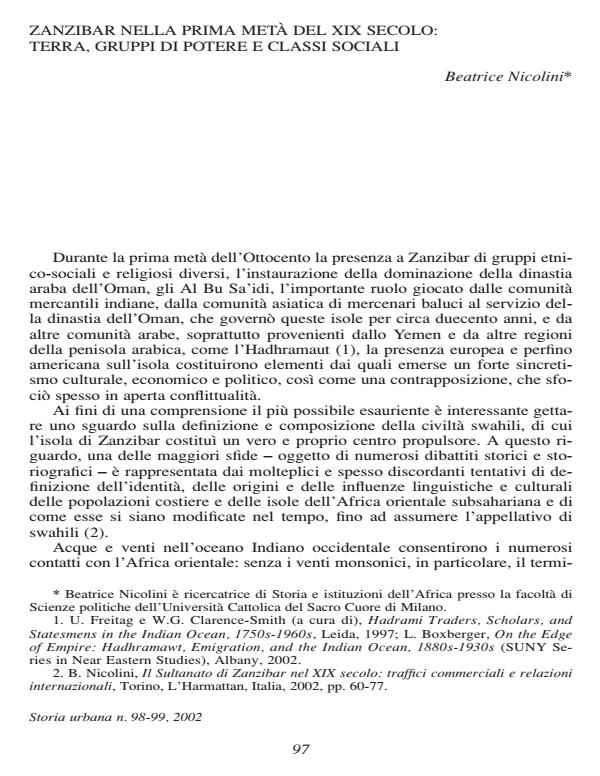Zanzibar nella prima metà del XIX secolo: terra, gruppi di potere e classi sociali
Journal title STORIA URBANA
Author/s Beatrice Nicolini
Publishing Year 2003 Issue 2002/98-99
Language Italian Pages 21 P. File size 136 KB
DOI
DOI is like a bar code for intellectual property: to have more infomation
click here
Below, you can see the article first page
If you want to buy this article in PDF format, you can do it, following the instructions to buy download credits

FrancoAngeli is member of Publishers International Linking Association, Inc (PILA), a not-for-profit association which run the CrossRef service enabling links to and from online scholarly content.
The history of the island and of the town of Zanzibar is here analysed within a wider framework, with special focus to Swahili identity and civilization. The multiethnic and multireligious composition, combined to the mercantile essence of the islands and coastal cities of East Africa, led to the creation and to the growing composition of Swahili civilization: the result of a dynamic society open to external influences, but also strongly based on its Bantu origins and traditions. The origins of Swahili civilization have been identified in five main factors, all of the same importance: the nature of the coast; trades between Africa, Arabia and Asia where Swahilis played a role of merchants and middlemen; the subjugation of their society to external powers; its multi ethnic composition; the complexity of this African society evolution. This paper takes into consideration the origins, trades with China, the role of Islam, the Portuguese presence, the urban landscape of the oriental coast of Africa and of the facing islands, the Arabs of Oman presence and its implications, some aspects of land property and of social stratification, and, finally, the coming of the Europeans.
Beatrice Nicolini, Zanzibar nella prima metà del XIX secolo: terra, gruppi di potere e classi sociali in "STORIA URBANA " 98-99/2002, pp , DOI: